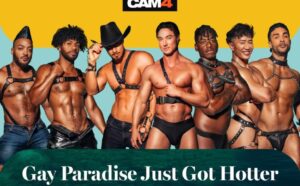The oft-repeated slur about gays, “You’re sick” actually has some truth to it, though not in the way bigots would have us believe. As we talked about a few weeks ago, gay people, in part due to prejudice and stigma, suffer poorer general health compared to their heterosexual counterparts.
Not only that, but LGBT citizens are twice as likely to be uninsured than the general population. Because of this, the White House and other advocacy groups like Out 2 Enroll are specifically targeting LGBT people to get them on board the Obamacare train. The White House even issued a recent white paper titled, The Affordable Care Act Helps LGBT Americans. Yet, despite the need, many gays are resistant. Why?
Turns out, years of discrimination and fighting with insurance companies has left LGBT people, particularly transgender people, feeling hesitant. According to The Washington Post, Out 2 Enroll conducted polling research and found that, for trans people:
They have been discriminated against to such a big extent, in the insurance world and the health care world. They all have the same experience with exclusions, and they come to this issue incredibly skeptical.

Another challenge the polling research found comes from LGBs trying — and failing — to get their same-sex partner covered under their health insurance. Of those who tried, half said they had trouble getting a partner signed up, and 72 percent said they felt discriminated against.
In a Huffington Post piece and at a White House briefing on the topic in September, Secretary of Health and Human Services Kathleen Sebelius claimed that Obamacare will address these problems, specifically in the areas of discrimination, lower premiums, and pre-existing conditions like HIV/AIDS, cancer, and mental health.
“We’ve also taken action to strengthen the civil rights provision in the law, by clarifying that the new law’s prohibition on sex discrimination includes discrimination based on sex stereotyping, and on gender identity,” Sebelius wrote.
While advocates are working nationally to increase Affordable Care Act sign-ups, here in San Francisco, there’s also been a big push, not just for gays, but also for sex workers and artists, who are often self-employed and therefore uninsured.
Siouxsie Q, who runs The WhoreCast podcast, is putting together an event Thursday, Oct. 24 at 7:30 p.m. at the Center for Sex and Culture to help get sex workers, their families, and allies enrolled and insured through CoveredCa.com. Called “The Healthy Ho’s Party,” and hosted by The WhoreCast’s Legion of Honor, the free event offers education, food, libations, and entertainment, including “medically themed” burlesque from Maxine Holloway.
According to Q, Obamacare is particularly impactful for sex workers for three big reasons, some of which overlap with LGBT concerns:
It brings down the cost of health care for self-employed adults who do not qualify for Medi-Cal or similar programs;
All insurance plans must now cover STI screening, violence counseling, and contraception services at no extra cost;
Under the Affordable Care Act, it will now be much more difficult to deny or revoke coverage for things like gender identity, HIV status, or occupation.
Q hopes people will “leave with the knowledge that they can access healthcare if they are just willing to deal with this admittedly imperfect system.”
In a similar vein, The Actors Fund and San Francisco Arts Commission’s Cultural Centers are hosting four workshops in November to answer enrollment questions specifically for those in the arts and entertainment industries (though anyone can participate in the workshops).
With all the discussions and debates that have surrounded the Affordable Care Act, it can be difficult to cut through the crap stew and get to the real issues at stake. In San Francisco, many of us are scraping by with no medical coverage, and Obamacare offers real, tangible benefits to improving the state of our health. But, it’s also up to us to act on it, and as evidenced by people like Siouxsie Q, The Actors Fund, and Equality California, information and help are available.
As Q put it, “This is a step toward a real healthcare system, but if people don’t buy into these new exchanges we won’t make it to the next step.”






 TrafficHolder.com - Buy & Sell Adult Traffic
TrafficHolder.com - Buy & Sell Adult Traffic